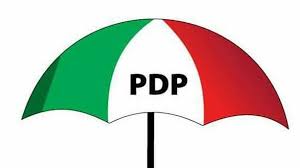The recent protests in some parts of Niger, Kano and Ogun states over the rising cost of living did not come to many Nigerians as a surprise. Many Nigerians saw it coming. There were disturbing signs which emerged last two years on the likely rise on the cost of living in the country.
For instance, the Food and Agricultural Organisation (FAO) and other organisations had predicted looming hunger in the country. Despite these warnings, our policy makers have not rolled out adequate measures to address the situation.
While the outbreak of Covid-19 pandemic in 2021 had disrupted the economy of many countries of the world including Nigeria’s, it did not teach any lesson to our leaders. The post Covid-19 era in Nigeria witnessed corruption and the mismanagement of public funds.
Many intervention programmes, particularly, in the agriculture sector geared towards food security were marred by corruption. Until the emergence of the President Bola Tinubu administration and the suspension of the director general of NARSAL, a subsidiary of CBN, little was known on how funds meant for interventions were outrightly looted.
Also, the Ministry of Humanitarian Affairs and Poverty Alleviation, created by the immediate-past President Muhammadu Buhari administration is being investigated. The former minister, Sadiya Umar Faruk, is alleged to have diverted funds meant for alleviating poverty in the country.
There are other contributory factors to the current inflation and prohibitive high cost of living in the country. They include the devaluation of the naira, worsening insecurity in farming communities, increase in the cost of production, fuel price increase, corruption, high public debt, hoarding, high taxes, increase in public spending, high exchange rate, etc.
On a serious note, these factors have contributed greatly towards the current food crisis in the country. There is the urgent need for government to address the underlying causes of the high cost of living and come up with short, medium and long term plans to address it.
While the release of 102,000 metric tons of assorted grains as directed by President Tinubu may temporarily provide relief to many Nigerians if judiciously channeled, the high rate with which inflation reduces the purchasing power of Nigerians calls for more urgent actions.
What actually triggered the current cost of living is the sudden removal of fuel subsidy and unification of dollars exchange rate by the Tinubu administration. Subsidised Premium Motor Spirit (PMS) or petrol is the livewire which sustained Nigerians’ lives.
In fact, fuel subsidy was what stabilised the prices of goods and services in the country. With the erratic power supply across the country, many companies resort to the use of diesel or petrol for production. By increasing the prices of petroleum products one expected a corresponding increase in the cost of production and transportation. No wonder, Nigerians are grappling with skyrocketing prices of essential goods after the removal of fuel subsidy.
Additionally, for an import dependent country like Nigeria, liberalisation of dollars has adversely affected importation. Importers find it difficult to get forex at official rate. This has affected the pricey of imported goods and services in the country.
While the rise in cost of living is a global phenomenon, the three tiers of government – federal, states and local governments – need to sit up, re-strategise and roll out more intervention programmes targeting larger population. The removal of subsidy has led to increase in revenue generation and distribution in the country. This is evident in the high revenue being shared by FAAC monthly.
It is quite unfortunate that state governors are doing little or nothing to bring succour to the suffering people, in spite of receiving billions of naira from the federation account. Many governors failed or poorly shared the first tranche of palliative released to them by the federal government last year.
Moreover, government at all levels should quickly implement living wage for their workers. The current take home pay is pitiable and hardly meets the demand of majority of workers amidst galloping inflation in the country.
The Tinubu administration should convene an economic summit of experts to advise on how to navigate the current economic mess. These experts should also help us with a comprehensive blueprint for robust economic growth.
Nigeria should embrace home grown economic policies. The prescriptions of Bretton Wood institutions have failed to take our economy to the eldarado of sorts. The Structural Adjustment Policies (SAP) implemented by the General Ibrahim Babangida military government in the early 1980s are evidence of how our once flourishing economy was ruined through shoddy privatisation, currency devaluation and corruption.
If SAP, with all its beautiful sing-song in the 80s, could not take the country to nirvana, the Bretton Wood policies will not change anything in our democratic setting. Our policy makers should stop swallowing any policies pushed to them hook, line and sinker. The policies need to be vetted and reviewed to reflect the yearnings and aspirations of Nigerians.
Ibrahim Mustapha,
Pambegua, Kaduna state
08169056963




